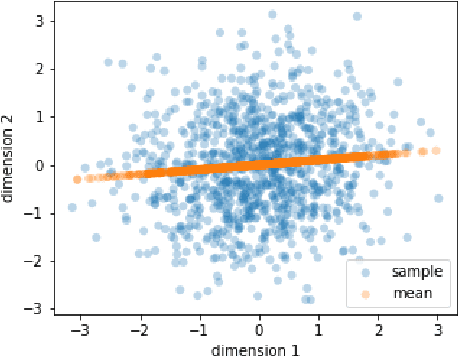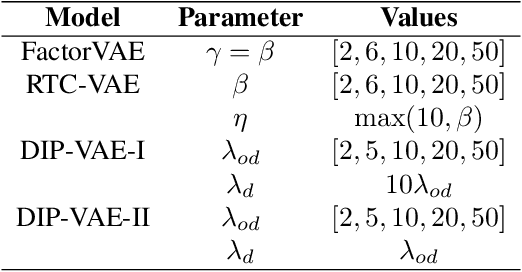Revisiting Factorizing Aggregated Posterior in Learning Disentangled Representations
Paper and Code
Sep 12, 2020



In the problem of learning disentangled representations, one of the promising methods is to factorize aggregated posterior by penalizing the total correlation of sampled latent variables. However, this well-motivated strategy has a blind spot: there is a disparity between the sampled latent representation and its corresponding mean representation. In this paper, we provide a theoretical explanation that low total correlation of sampled representation cannot guarantee low total correlation of the mean representation. Indeed, we prove that for the multivariate normal distributions, the mean representation with arbitrarily high total correlation can have a corresponding sampled representation with bounded total correlation. We also propose a method to eliminate this disparity. Experiments show that our model can learn a mean representation with much lower total correlation, hence a factorized mean representation. Moreover, we offer a detailed explanation of the limitations of factorizing aggregated posterior -- factor disintegration. Our work indicates a potential direction for future research of disentangled learning.
 Add to Chrome
Add to Chrome Add to Firefox
Add to Firefox Add to Edge
Add to Edge